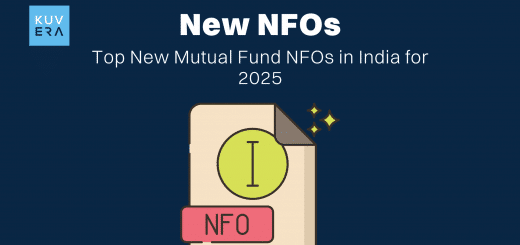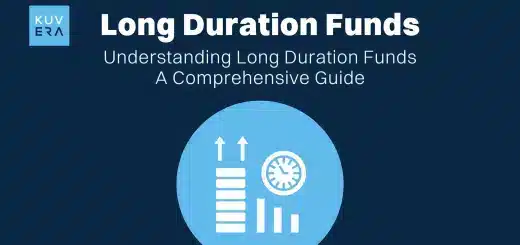Investor takeaways
- We recommend an Index first asset allocation based on your goals and risk profile. You can see it through our goal planning here – Plan your goals
- You can see the performance of our Index first asset allocation here – Performance & Recommended Portfolio Update
- There are quite a few Index funds available to the informed Indian investor. You can see them all and invest from here – List of Index Funds
 Warren Buffett, arguably one of the greatest investors of all time, made a $1 million wager in 2007 that no hedge fund could beat the index over a period of 10 years. Buffett believed that even if active management could manage to generate higher returns in select years, they fail to outperform the market in the long run. Long story short, Buffett, won his million dollars in 2017 and donated the money to a charity.
Warren Buffett, arguably one of the greatest investors of all time, made a $1 million wager in 2007 that no hedge fund could beat the index over a period of 10 years. Buffett believed that even if active management could manage to generate higher returns in select years, they fail to outperform the market in the long run. Long story short, Buffett, won his million dollars in 2017 and donated the money to a charity.
Buffett has been a strong proponent of passive investing, and their merits over active investing. The debate of active vs passive investing is an ongoing one. This article adds to the discussion.
Passive funds, or Index Funds, invest in a group of securities that replicate the index. The purpose of index funds is not to beat the market, but to provide the same returns as the market.
Fact: When we say ‘market’, we refer to the market index, which is a collection of stocks meant to represent the whole of the market. The popular indices in India are Nifty 50, Nifty Nest 50 and Sensex.
Active funds, on the other hand, are managed by fund managers who try to outperform the market using their investment philosophy and expertise. The funds have higher fees compared to index funds, due to the hands-on management of the portfolio.
Why Index Funds?
Lower Fees: The expense ratio of Active funds range between 1% to 2.5%, while index funds charge as low as 0.12% (UTI Nifty Index fund). Periodic outperformance is generally not worth the higher fees that’s paid out even in times of downturn.
Lower Risk: Active funds are much riskier than Index funds as they employ hands-on portfolio management in an attempt to outperform the market. Active funds have the freedom to buy any security that they think would generate high returns, which is great when the portfolio managers are right but terrible when they’re wrong.
Market Performance: Index funds give more or less the same returns as the overall market. Index funds gave an average of 13.7% returns as compared to 10.2% by large cap funds, 8.22% by multi-cap funds and 4.8% by mid-cap funds in the past year.
Transparent Portfolio: Index funds invest in stocks that are in the market indices (be it Nifty50, Nifty next 50, Sensex, etc.). So you know where your money is invested, which makes it easier to track.
The Final Word
Indian investors are slowly, but steadily, shifting to Index funds. The lower fees have been a major incentive for investors who don’t have to incur high costs for their mutual fund returns. With the recent change in SEBI norms, active funds are more likely to under perform, as the stricter definition of large-cap stocks has limited fund managers’ ability to change styles for better returns.
The question that’s being asked more and more is, “why pay higher fees for actively managed funds when they don’t outperform the Index?”
The Final “Final” Word
By periodically investing in an index fund, for example, the know-nothing investor can actually outperform most investment professionals.
Warren Buffet
Niveditha Vishwamithra is an Analyst at Kuvera.in: India’s first completely free Direct Mutual Fund investing platform
This article was initially published by CNBCTV18 in the Personal Finance section.
Start investing through a platform that brings goal planning and investing to your fingertips. Visit kuvera.in to discover Direct Plans and start investing today.
#MutualFundSahiHai, #KuveraSabseSahiHai!











Anup Dutta
November 23, 2018 AT 06:10
These days index funds are talk of the town!
There are arguments frequently given in favor or against, Index funds by many experts, considering Indian Market Scenarios.
People talks about “A monkey Can beat the market” logic, while providing argument in favor of Index funds, where as some talks about sustained out performance of Large Cap Funds over Index, in last 10 years.
Some experts talks about the maturity of Indian market as compared to the markets of developed nations, where as some talks about the the interest low rate of interest rate, in market of developed Nations,as a success parameter of Index funds.
I think all experts analyzing the data as per their conclusion and mind set and very few has provided transparent comparison and analysis.
Hence, can I request to analyse the data points of 1~2 Index funds returns as compared to 3~4 best/consistent performing large Cap funds in medium and long term, in Indian market scenario.
As the history of direct mutual fund is not very old in India, may be for medium term (5~6yrs) analysis, direct mutual funds can be compared, however for long term analysis 10years, regular funds are the only option.
Love to see a new blog on this in future time.
Gaurav Rastogi
November 26, 2018 AT 01:38
Hello Anup, in the fund page for every fund we provide visual comparison vs 4 indices (Nifty 50, NN50, Midcap 100 and Smallcap 100). You can see how most funds did versus the index there.
“Hence, can I request to analyse the data points of 1~2 Index funds returns as compared to 3~4 best/consistent performing large Cap funds in medium and long term, in Indian market scenario. ”
You can only decide who has been best / consistent in hindsight. So ofcourse, if you choose best performing fund in the past 5 years, it will beat the index. Question is can you select those funds for the next 5 years? You should also read the SPIVA data. Forget future, even today over 3y 5y or 10y histories majority of large caps fail to beat the index. This is when they had the advantage of style creep – invest 30% in small cap and still be called large cap.
SPIVA report -https://www.spindices.com/documents/spiva/spiva-india-mid-year-2018.pdf
Thanks,
Gaurav
Anup Dutta
November 26, 2018 AT 18:39
Thankx Gaurav for the insight.
In a falling market, a index fund will give better stability in portfolio as compared to a professionally managed Large Cap Fund.
Whereas in the rising market, a Large Cap fund will always outperform a Index Fund.
Overall, in a long term investment period (~ 10 years) Index funds will surely outperform most of the large cap funds. Also Index funds are normally attracts less or NO EXIT LOAD, unlike Large cap funds, if redeemed before one year.
For small investor, the most difficult task is to keep cool and maintain long & disciplined investment vision;
The unfortunate fact is that, majority of small investors sell their long nourished investments when it is utter cheap (falling Market)!! Rather I can suggest my investor friends, to keep a part of the monthly SIP in liquid fund and once market is down, make STP or transfer Lump sum amount to existing equity funds from the liquid funds.
It will help you to keep you average price low.
I learnt this simple rule of Investment in a hard way..Good Luck!
Abhishek Agrawal
April 26, 2020 AT 23:02
What about ETFs? Gaurav, could you please write a blog comparing ETFs and Index funds? I see several blogs online citing ETFs are much more tax friendly like: https://www.thebalance.com/etfs-vs-mutual-funds-the-battle-continues-1214710.
Appreciate your insights.
Gaurav Rastogi
April 28, 2020 AT 01:16
Sure, will do so, though in India no benefit of ETF per see over MFs yet. Plus with ETF in India you have liquidity driven bid-ask https://twitter.com/invest_mutual/status/1239496809346560001
Alston Alphonso
May 18, 2020 AT 12:32
One of the best platform for investing my funds to grow big. Moving ahead putting all my trust over the kuvera platform I believe one of the best decision I ever made. Thank you Team?
Gaurav Rastogi
May 21, 2020 AT 08:14
Thanks Alston.